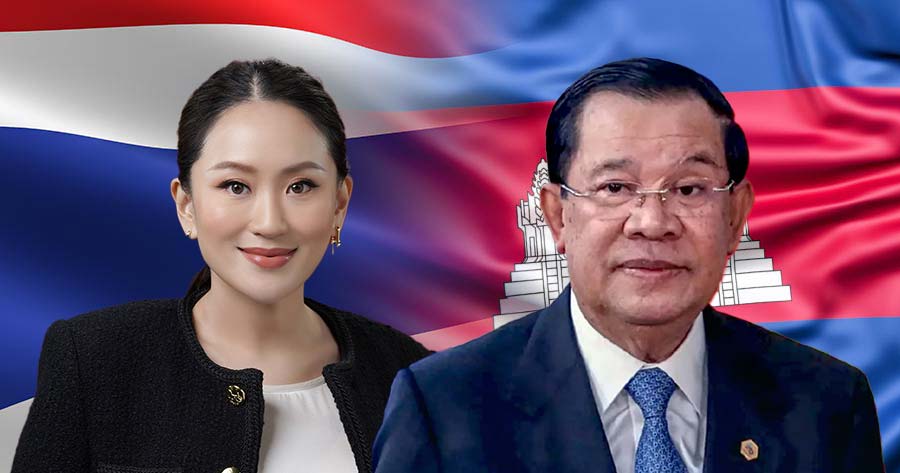As tensions between Thailand and Cambodia escalate over the unauthorized release of a private conversation between Prime Minister Paetongtarn Shinawatra and Cambodian Senate President Hun Sen, Cambodian media has come out in defense of its government’s actions, calling them “transparent” and “peace-driven.” But a closer look reveals a glaring contradiction between those claims and the facts on the ground.
The Cambodian government maintains that its use of social media in this matter has been “responsible” and “aimed at de-escalating tensions.” It also accused unnamed Thai political and military figures of stirring nationalism and manipulating the media for domestic gains.
Yet, the starting point of this entire controversy lies entirely on Cambodia’s own actions: the covert recording and partial dissemination of a private diplomatic conversation without consent. Regardless of how the content is later framed, the method of obtaining and leaking the information is a blatant breach of international diplomatic protocol — one that undermines trust and damages the spirit of bilateral cooperation.
Cambodia’s insistence that it acted “transparently” is difficult to reconcile with the facts. Transparency requires openness, mutual consent, and full disclosure — none of which were present in the handling of this incident. Instead, a selectively edited version of the audio was circulated in private circles, before the full recording would be eventually shared by Hun Sen himself, seemingly to sway domestic public opinion.
This approach appears to be less about transparency and more about a ticky-tacky strategy to stir unrest among Thai citizens.
In stark contrast to Cambodia’s combative tone, Thai leadership has responded with caution. Prime Minister Paetongtarn publicly apologized for the incident, reaffirmed support for the Thai military, and stressed the importance of unity in the face of external provocation. Air Chief Marshal Surapol Navamavadhana, a respected former UN military observer, warned the Thai public to stay vigilant against attempts to destabilize the country from within by manipulating public sentiment through emotionally charged narratives.
Media also claims that its Cambodian leaders are committed to “peaceful coexistence” and “good neighbourly relations.” Yet, leaking private discussions — particularly in times of heightened political sensitivity — does little to demonstrate goodwill. Rather, it puts Thailand in a defensive position and sows unnecessary discord between peoples who have long lived side by side.
If Cambodia is genuinely committed to peace and de-escalation, it should start by respecting basic diplomatic norms: engage through official channels, honor the confidentiality of discussions between leaders, and refrain from actions that might provoke unrest — especially when tensions are already running high along the border.
Thailand has called in the Cambodian ambassador and voiced its concerns through the appropriate diplomatic channels. For the sake of regional stability, both sides must now work to restore mutual trust. But that process begins with accountability — not deflection.





